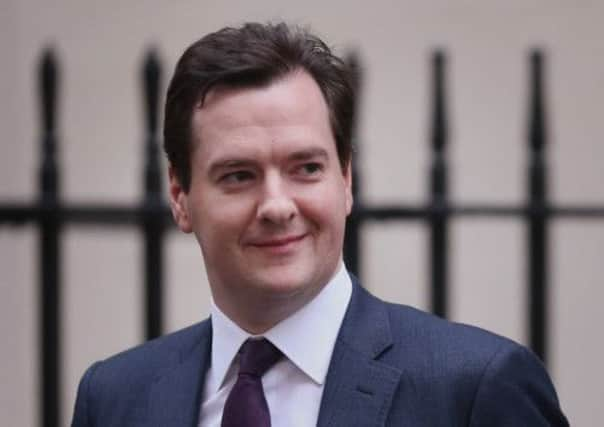Eddie Barnes: These austere times may play into the hands of the pro-independence camp


Chancellor George Osborne’s Budget last week only served to illustrate his impotence in the face of Britain’s endless economic winter. A day later, the Institute for Fiscal Studies revealed a potential £9 billion of tax rises after the next general election, as Britain is forced to come off its fix of debt. In the meantime, welfare cuts – many due to kick in next week – will add further pain. And the political options? Prime Minister David Cameron is now being pitied in the Tory press – a treatment far more brutal than mere hatred. With Ed Miliband still to don the Heir Apparent’s garb, it leaves only two pro-UK politicians who currently have momentum; one, Boris Johnson, is not available – yet; the other, Ukip leader Nigel Farage, is probably not what Better Together has in mind as the face of its campaign.
As the independence referendum run-in begins to get serious, this toxic combination of economic and political listlessness can open the door for Alex Salmond & Co. At the SNP conference last weekend, he and his ministers gave it a push, focusing on the cuts to come and the cost for Scottish households. This line of attack is likely to reap political rewards. In parliament yesterday, council leaders told MSPs about the “unsustainable” nature of the “bedroom tax”, with the leader of Clackmannanshire Council warning of the “devastating fallout” of welfare reforms.
Advertisement
Hide AdAdvertisement
Hide AdAnd now, with the referendum date set, it is hardly surprising that people are asking whether independence is the solution. It was summed up in a conversation with one wavering senior public sector leader last week. Social democratic Scotland should have the power, he argued, to mitigate the cuts that are on their way. But even the new Scotland Act would be insufficient to do so in a progressive way. And so … he left the implication hanging.
Yet to win next year, demolishing the case for the status quo will only be half the job. Salmond also needs to persuade people to complete that sentence. The problem is that the standard technique – hurling goodies from childcare to oil funds to free tuition – will not stick in the present circumstances. And the case for independence is being punctured by what the Scottish Government’s own former chief economist yesterday described as the “cavalier assertions” on which the case is resting.
Salmond can brush this aside if he wishes, in the hope that his government’s high trust ratings will paper over the cracks. But the public has an instinct for sniffing out over-promises. The country is in a hole. And if the UK is losing its AAA status and getting deeper into debt, it only reinforces the fact that Scotland, too, is facing the same difficulties. After a week in which the daunting challenges facing the UK and Scotland have been underlined, the question is whether the independence campaigners will, over the coming months, have the good sense to spell them out.